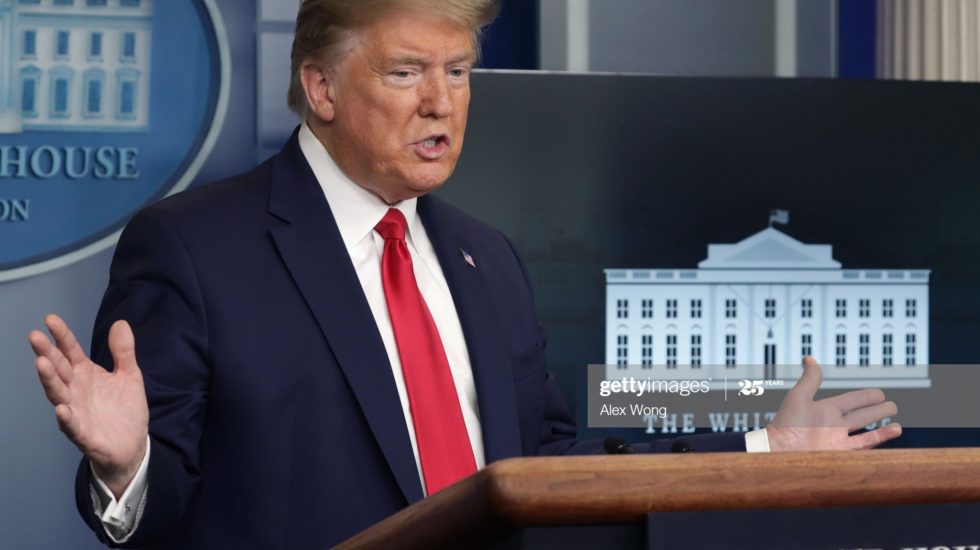President Trump has made it clearer than ever: he truly believes that he is the only one who matters.
In the midst of the Covid-19 coronavirus pandemic that has already killed more than 20,000 Americans and will kill many thousands more, the only truly important things to Trump are himself, his reputation and his power.
At a White House news conference on Monday evening, which supposedly focused on the pandemic, he declared — with no supporting evidence — that “When somebody’s the president of the United States, the authority is total.”
In the current crisis, that claim applies especially to state governors, who took the lead in battling the virus and its effects when Trump and his administration were botching the federal response.
As of Tuesday morning, the Johns Hopkins Covid-19 Dashboard put the U.S. toll at 583,220 confirmed cases of infection and 20,465 deaths. Other sources put the death toll at more than 23,000.
In New York state, the world’s hottest hot-spot, Gov. Andrew Cuomo says the virus-death curve is finally flattening.
So Trump has pivoted from playing down the threat and laying the burden on governors to claiming credit for the apparent success of social distancing and other measures in blunting the pandemic’s advance.
“For weeks, he sought to shift blame to the governors for any failures in handling the virus, presenting himself as merely a supporting player,” says the New York Times. “Now as the tide begins to turn, he is claiming the lead role.”
Or, as Trump put it:
“The president of the United States calls the shots,” he said at his evening news briefing. “They [governors] can’t do anything without the approval of the president of the United States.”
This is nonsense. And a growing number of prominent Republicans are saying so.
Writing on Twitter, Rep. Liz Cheney (R-WY) cited the 10th Amendment to the Constitution, which makes it vividly clear that the federal government — and therefore Trump — doesn’t hold “absolute power.”
Coming from the daughter of Dick Cheney, who wielded more power than any other vice president in memory, that’s really saying something.
CNN’s Kaitlan Collins pressed Trump on his claims of power: “You said when someone is president of the United States, their authority is total,” she said. “That is not true. Who told you that?”
Trump didn’t answer.
A lowlight of the more than 2-hour briefing Monday night was a 5-minute video put together by White House staffers glorifying the president’s handling of the coronavirus crisis and using carefully selected clips of governors and journalists praising him.
Some critics called it North Korean-style propoganda.
And reporters in the room quickly noted that there was a significant, nearly monthlong gap, in the video’s timeline.
CBS’s Paula Reid pressed Trump on how his administration had failed to prepare for the virus in February.
“You didn’t use it to prepare hospitals, you didn’t use it to ramp up testing,” Reid said.
Trump cut her off, calling her “disgraceful” and “a fake.”
“Reid forged ahead,” says the Washington Post:
“What did you do with the time that you bought, the month of February?” she asked. “That video has a gap — the entire month of February. . . . What did your administration do in February with the time that your travel ban [on China] bought you?”
“A lot. A lot,” was Trump’s total, and totally empty, answer.
“But conveying truthful information is not the point of these briefings,” says Vox. “Instead, Trump’s objective is to reframe problems as the result of unfair media coverage and feed red meat to his base by sparring with reporters.”



